Suicides highlight mass shooting survivors' trauma and fragility of healing: 'We still live with it every day'
Three apparent suicides struck mass shooting towns in just 10 days.
Two teenagers who survived a high school mass shooting in Florida and a parent of a girl killed in an elementary school mass shooting in Connecticut died by apparent suicide within the last 10 days, prompting calls to focus on the lasting trauma of these attacks, which doesn't end with the gunfire.
It has also put the spotlight on how tenuous healing can be -- with survivors who may seem to have turned a corner in their grief instead befalling tragedy.
More than six years after his 6-year-old daughter, Avielle, was murdered at Sandy Hook Elementary School in Newtown, Connecticut, along with 19 other children and six educators, Jeremy Richman was found dead Monday from an apparent suicide, according to police.
If you are in crisis, please call the National Suicide Prevention Lifeline at 1-800-273-TALK (8255) or contact the Crisis Text Line by texting TALK to 741-741.
"Jeremy was a good friend," Sen. Chris Murphy, D-Conn., told ABC News on Monday. "He was someone so committed to understanding why these tragedies happen and why brains push people to acts of violence."
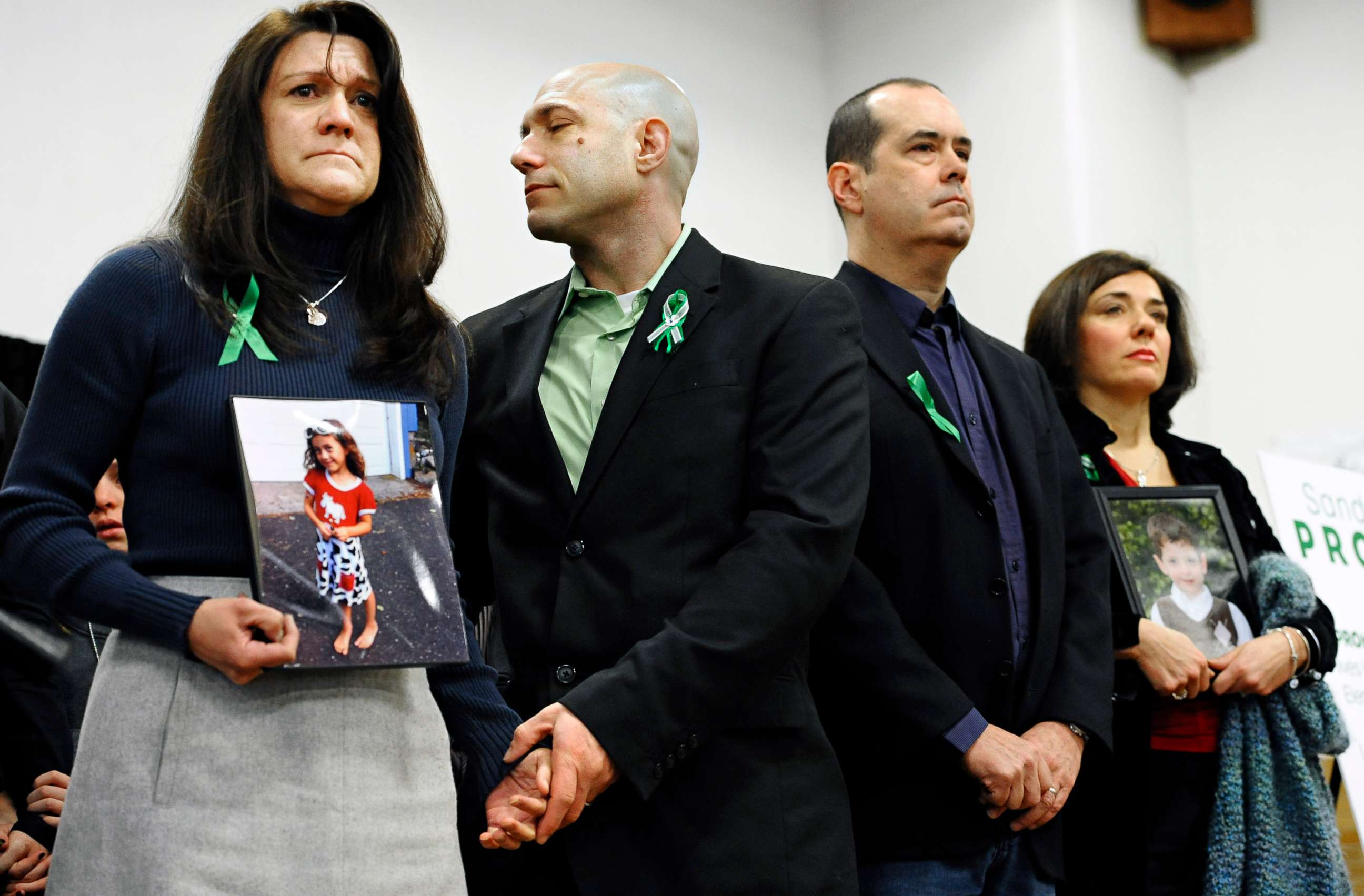
After the shooting, Richman, a neuro-pharmacologist, founded a nonprofit "to study the neuroscience, the underpinnings of violence and the risk factors," he told the ABC News podcast "10% Happier" last year.
Murphy said Richman was at his office a few weeks ago and appeared "so excited about the work the foundation was doing and their ability to get their training program -- teaching about the way that the brain works and the way that it can fail to work properly -- to more and more people."
"Every single time somebody commits suicide, you can't understand it," Murphy said. "But in this case, Jeremy spent his entire life trying to help people identify the warning signs of harm. And it tells you how complicated the brain is, that even Jeremy couldn't figure out a way to get himself the help that he needed."
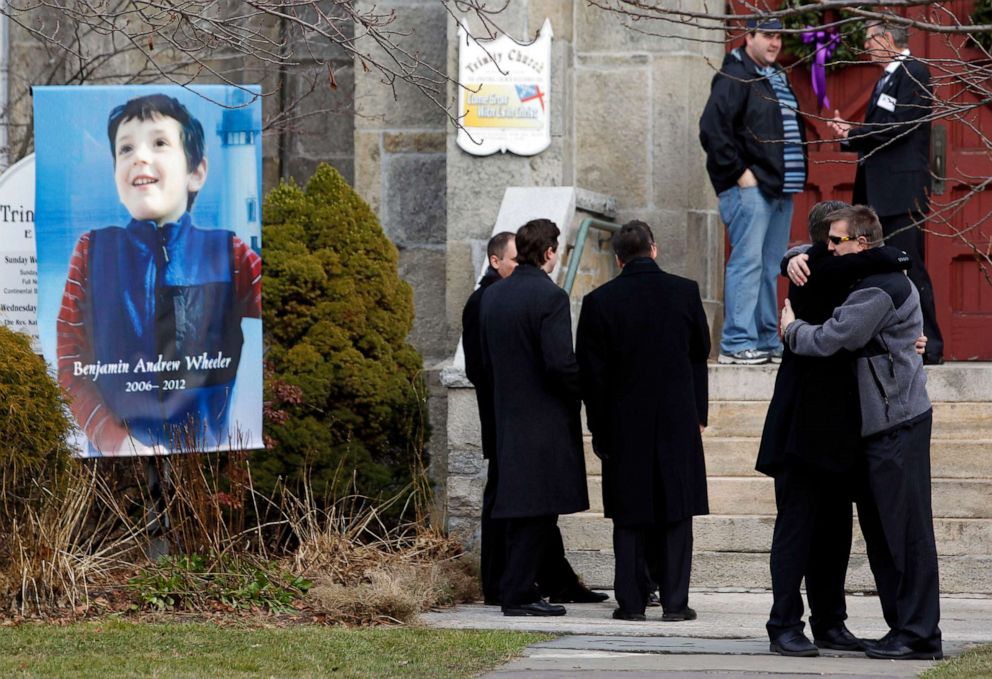
'We still live with it'
While what led to this month's suicides are unclear, they shed light on the emotional pain and trauma that linger for the survivors of horrific mass shootings, as well as the victims' families.
"Just because time has gone away, it doesn't mean that the hurt has gone away or that the guilt has gone away," said Missy Mendo, a student survivor of the 1999 Columbine High School mass shooting in Colorado which killed 13. "We still live with it every day. It's just how we learn to live with it."
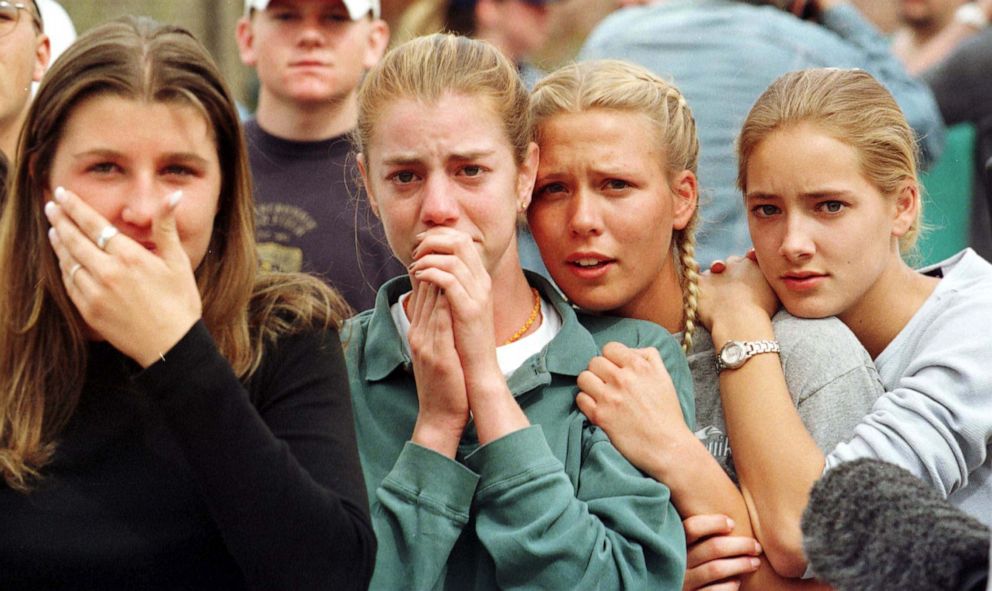
Mendo appeared on ABC News' "Start Here" podcast Tuesday and added that many things can set back survivors. "It could be a word, it could be a phrase, it could be a balloon popping," she said.
It can also be other tragedies.
"After Sandy Hook happened, that triggered my insomnia again," she said. "They were just babies."
Survivor's guilt
Mass shooting survivors also have to contend with survivor's guilt.
"It took a very, very long time for me to allow my parents to hug me," Mendo said, "because I almost felt guilty ... because there were some parents that weren't able to hold their children that night."
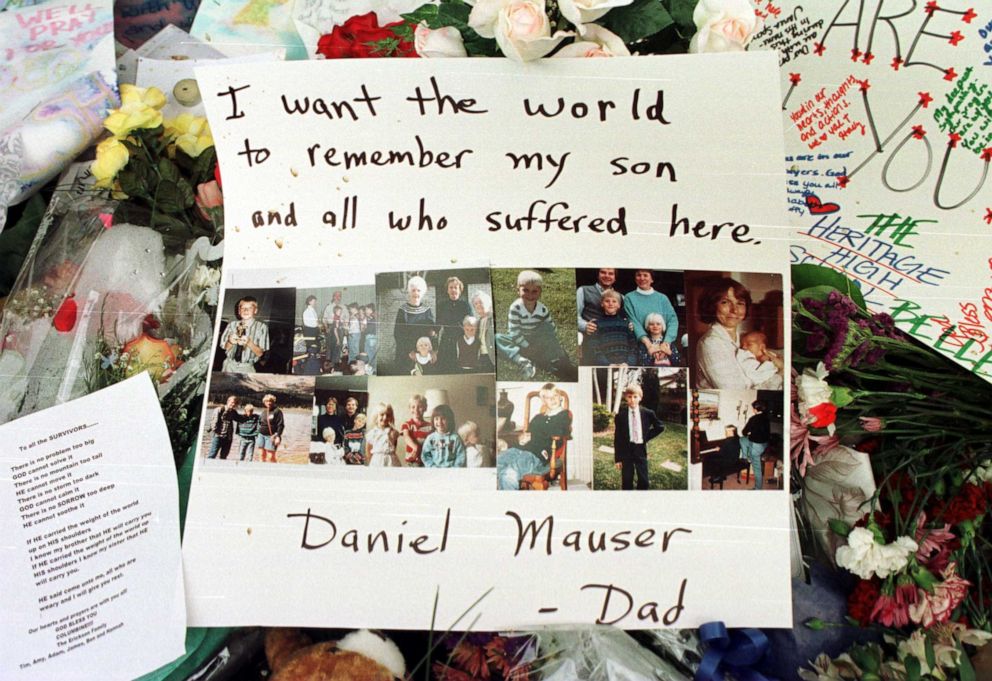
Richman's death in Newtown came days after what police say was the apparent suicides of two Parkland, Florida, teenagers.
One of the teenagers,19-year-old Sydney Aiello, who was found dead on March 17, was a recent graduate of Parkland's Marjory Stoneman Douglas High School and lost her good friend, Meadow Pollack, in the Feb. 14, 2018, mass shooting there that killed 16 other students and educators.
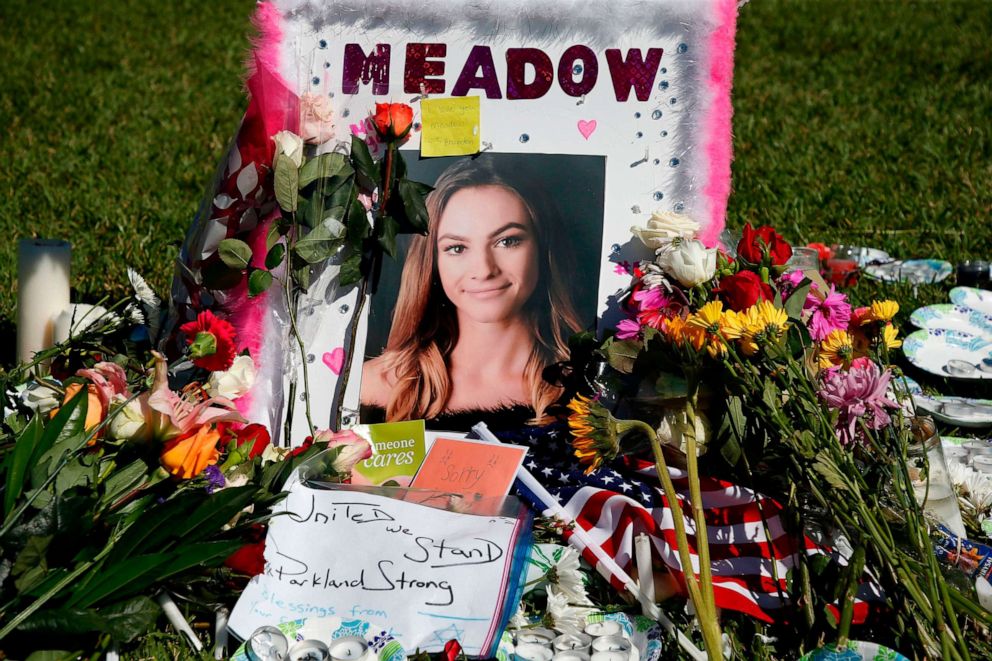
Aiello's mother, Cara Stein-Aiello, told CBS's Miami station her daughter struggled with survivor's guilt and was diagnosed with post-traumatic stress disorder.
"It was devastating to bury another beautiful young person in Parkland," tweeted Pollack's brother, Hunter. "Our community is going through tragedy again."
Moving forward
"Trauma is something that doesn’t leave us after we experience it," Christian Burgess, director of the Disaster Distress Helpline, part of the National Suicide Prevention Lifeline, told ABC News on Tuesday. "When anyone experiences any type of traumatic event where their life was threatened or the life of someone they care about was threatened, and they survive that phenomenon, it leaves the potential for severe to very severe mental health concerns such as depression, substance abuse, persistent and serious anxiety or suicidal thoughts and gestures."
About 60 percent "of people that are touched by a disaster are able to bounce back fairly quickly, particularly with the support from loved ones," Burgess said, while about 40 percent “may exhibit severe to very severe mental health concerns.”
In the wake of Parkland's two suicides, the Jewish Adoption and Family Care Options (JAFCO), a non-profit social services agency in the Coral Springs and Parkland community, hosted an emergency meeting Sunday with therapists, CEOs of mental health agencies, concerned parents and several parents of Parkland shooting victims who wanted to help.
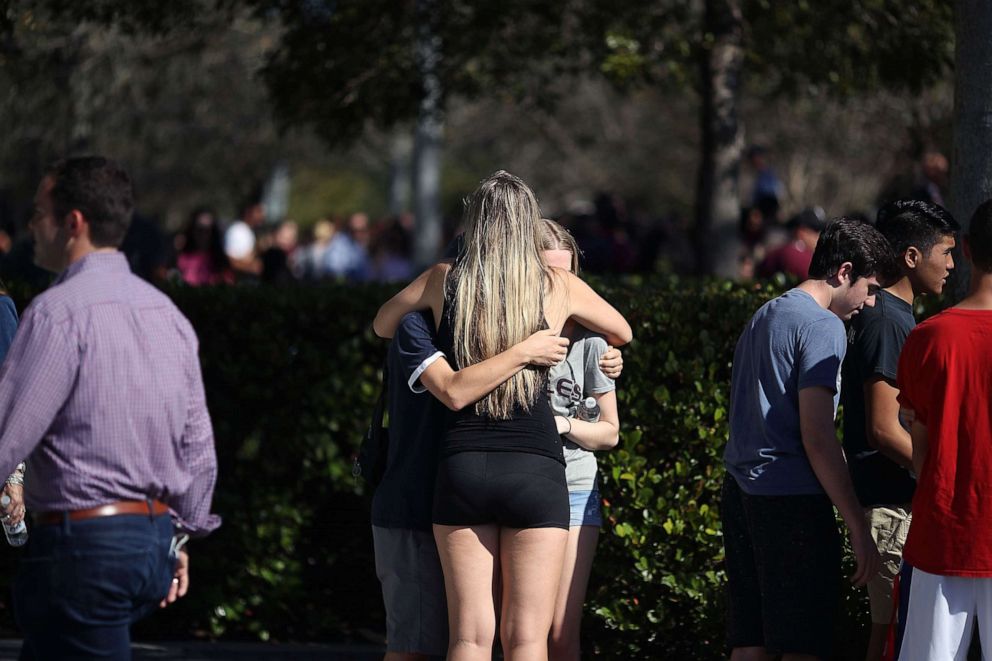
The "overwhelming emotion in the room was really care and concern," Sarah Franco, executive director of JAFCO, told ABC News on Monday.
Franco said she helped create a community center where students, teachers, parents, faculty and first responders are offered a sense of togetherness, people to confide in and wellness practices including yoga, tai chi and acupuncture.
"We want to expose people to a wide variety of those choices because traditional therapy may not be the only choice for everyone, although of course, it is a good choice," she said. "It's not gonna make the shooting go away, but it's going to help us deal."
Some teenagers don't want to burden their teachers or parents with their internal struggles, Franco said, and she hopes this center will be a place "where it's OK to talk about it. Or just listen to someone else."
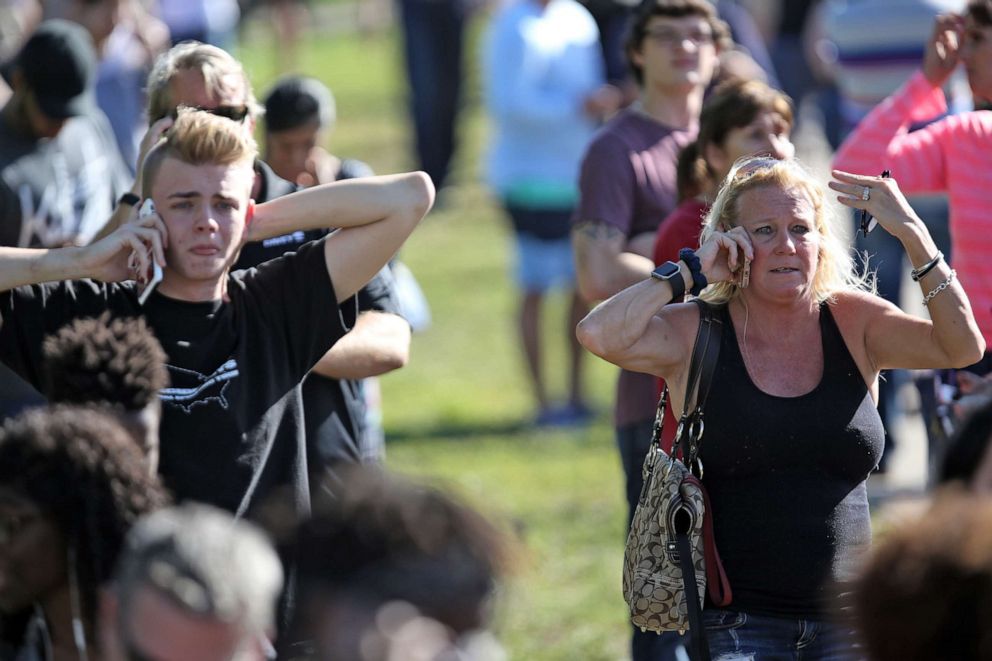
Warning signs
Burgess urges loved ones to watch for these warning signs exhibited in a disaster survivor:
-- Talking about wanting to die or talking about suicide. Often people say it directly, Burgess said, but others may express it more indirectly. "They may talk about feeling helpless, or having no reason to live. They may talk about feeling trapped," he said, adding that whether it is communicated directly or indirectly, it should be taken seriously.
-- Increasing use of alcohol or drugs.
-- Acting anxious, agitated or reckless.
-- Sleeping too little or too much.
-- Withdrawing or isolating.
-- Extreme mood swings.
Steps
For friends and family who notice any of those warning signs, Burgess recommends these steps:
-- Ask if they are thinking of killing themselves in an "honest dialogue."
-- "Work to keep them safe," he said. "If the person is suicidal or in crisis, help them develop a safety plan including trying to remove any access to lethal means."
-- "Be there. Whether that's in person or on the phone … listen to them without judgment," he said. "Give assurance that you’re supporting them and they’re not alone."
-- Help the person in crisis connect with available resources. Strengthafterdisaster.org is one resource Burgess recommends.
--Follow up and keep asking how they are doing. If they are still struggling, return to those first steps.
Franco recommends the Columbia Protocol to help determine when someone is at risk for suicide. The Columbia Protocol offers these six questions for teenagers and these six questions for parents.
Mendo, the Columbine survivor, now works with The Rebels Project, which helps mass shootings survivors find a support system. One of The Rebels Projects' new initiatives is a network for survivors to use as a tool kit, she said.
"It gets very comfortable to back away and become more secluded. My advice is to do the opposite. Go find somebody, find a person. Find us at The Rebels Project. Find something that you're comfortable with being around and talking to just find somebody to talk to," Mendo said.
"Recovery takes time," Burgess said, "and recovery is possible with ongoing care and support."
ABC News' Brad Mielke, Victor Oquendo, David Rind and Scott Withers contributed to this report.